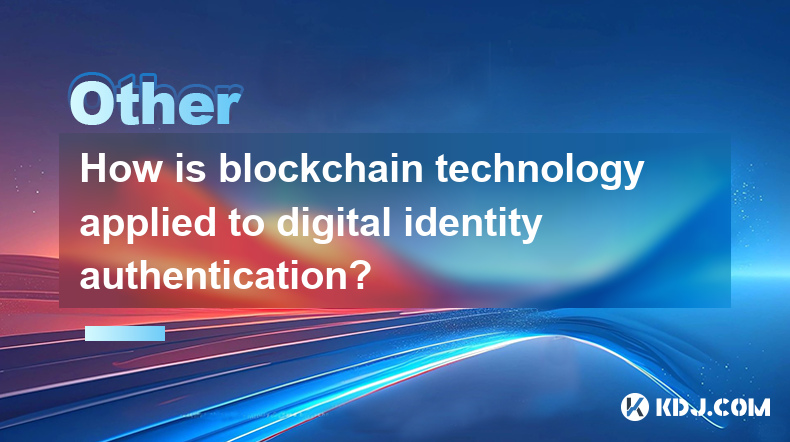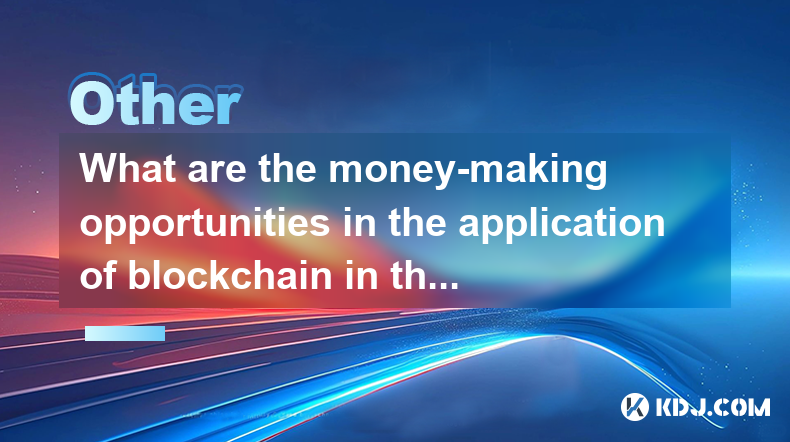-
 Bitcoin
Bitcoin $83,384.0103
-0.52% -
 Ethereum
Ethereum $1,808.8880
-0.27% -
 Tether USDt
Tether USDt $0.9996
-0.01% -
 XRP
XRP $2.1285
0.17% -
 BNB
BNB $590.6650
-1.02% -
 Solana
Solana $119.8001
-1.16% -
 USDC
USDC $1.0000
-0.01% -
 Dogecoin
Dogecoin $0.1672
-1.52% -
 Cardano
Cardano $0.6450
-2.14% -
 TRON
TRON $0.2358
-0.73% -
 UNUS SED LEO
UNUS SED LEO $9.1542
-0.44% -
 Chainlink
Chainlink $12.7548
-1.04% -
 Toncoin
Toncoin $3.2310
-2.48% -
 Stellar
Stellar $0.2517
-2.57% -
 Avalanche
Avalanche $17.3882
-4.28% -
 Shiba Inu
Shiba Inu $0.0...01223
-0.63% -
 Sui
Sui $2.1802
-2.73% -
 Hedera
Hedera $0.1601
-2.08% -
 Litecoin
Litecoin $82.2437
-2.91% -
 Polkadot
Polkadot $3.9303
-2.19% -
 MANTRA
MANTRA $6.2192
-1.01% -
 Bitcoin Cash
Bitcoin Cash $295.8200
-1.72% -
 Dai
Dai $1.0000
0.00% -
 Bitget Token
Bitget Token $4.4500
-1.78% -
 Ethena USDe
Ethena USDe $0.9991
0.00% -
 Pi
Pi $0.6522
50.32% -
 Monero
Monero $214.4466
-1.61% -
 Hyperliquid
Hyperliquid $11.5830
-3.12% -
 Uniswap
Uniswap $5.8275
-1.00% -
 OKB
OKB $54.4412
7.17%
How is blockchain technology applied to digital identity authentication?
Blockchain's decentralized nature enhances digital identity security by using cryptographic techniques and verifiable credentials, but scalability and interoperability remain key adoption hurdles, necessitating robust regulatory frameworks.
Feb 27, 2025 at 04:55 pm

How is Blockchain Technology Applied to Digital Identity Authentication?
Key Points:
- Blockchain's decentralized and immutable nature offers enhanced security and trust for digital identity systems, mitigating risks associated with centralized databases.
- Various blockchain-based solutions leverage cryptographic techniques to ensure data integrity and user privacy while facilitating verifiable credentials.
- The integration of zero-knowledge proofs and homomorphic encryption further strengthens privacy protection without compromising verification capabilities.
- Interoperability challenges and scalability issues remain key hurdles to widespread adoption of blockchain in digital identity.
- Regulatory frameworks and standardization efforts are crucial for fostering trust and ensuring the secure and ethical implementation of blockchain-based digital identity systems.
How Blockchain Technology is Applied to Digital Identity Authentication:
- Decentralized Identity Management: Traditional identity management systems rely on centralized authorities, making them vulnerable to single points of failure and data breaches. Blockchain technology offers a decentralized alternative. Instead of relying on a single entity to hold and manage identity data, a distributed ledger stores and verifies identity information across multiple nodes. This inherent decentralization enhances security and resilience. If one node is compromised, the entire system isn't jeopardized because the data is replicated across the network. This also makes it incredibly difficult for malicious actors to alter or delete identity information without detection. Furthermore, the immutability of the blockchain ensures that once identity information is recorded, it cannot be easily tampered with. This offers a high degree of trust and reliability compared to traditional systems, where data can be easily altered or deleted by authorized or unauthorized individuals. The transparency inherent in many blockchain architectures also allows for audits and verifications of the integrity of the system, furthering the trust and reliability. However, the choice of consensus mechanism significantly impacts the level of decentralization and security. Proof-of-stake systems, for instance, are generally considered more energy-efficient than proof-of-work, while offering comparable security. The selection of the appropriate blockchain platform and its consensus mechanism is a crucial factor in designing a robust and secure decentralized identity management system. Careful consideration must also be given to the level of privacy required, as certain blockchain architectures may offer better privacy features than others. Finally, the scalability of the chosen blockchain platform is vital to handle the potentially massive volume of transactions involved in a large-scale digital identity system.
- Verifiable Credentials and Self-Sovereign Identity: Blockchain facilitates the creation and management of verifiable credentials, which are digital representations of identity attributes. These credentials are cryptographically secured and can be selectively shared with different entities, giving users greater control over their personal data. This concept aligns with the principles of self-sovereign identity (SSI), where individuals have complete ownership and control of their digital identities. Users can issue, manage, and revoke their credentials at will, eliminating the need to rely on centralized authorities. Verifiable credentials leverage digital signatures and cryptographic hashing to ensure the authenticity and integrity of the credentials. This prevents forgery and manipulation, offering a higher level of security than traditional credentials, which can be easily copied or forged. The ability to selectively disclose only the necessary information ensures privacy, as users don't need to reveal their entire identity profile to access services or prove their identity. The use of decentralized identifiers (DIDs) further strengthens the privacy and security of verifiable credentials, enabling users to control their identity information without relying on a central authority. The implementation of verifiable credentials on a blockchain ensures the persistence and immutability of the credentials, providing a permanent record of the user's identity attributes and their verification. This is especially beneficial in scenarios where proof of identity needs to be maintained over an extended period, such as employment history verification or academic records. However, challenges remain in establishing widespread interoperability between different verifiable credential systems and ensuring the secure management of private keys used to issue and verify these credentials.
- Zero-Knowledge Proofs and Privacy-Enhancing Technologies: Blockchain-based digital identity systems can incorporate advanced cryptographic techniques like zero-knowledge proofs (ZKPs) to enhance user privacy. ZKPs allow individuals to prove their identity or certain attributes without revealing any other sensitive information. This means users can demonstrate eligibility for a service or verify their identity without compromising their privacy. For example, a user can prove they are over 18 years old without revealing their exact date of birth. Similarly, homomorphic encryption allows computations to be performed on encrypted data without decryption, further protecting sensitive information. These privacy-enhancing technologies are crucial for ensuring that blockchain-based digital identity systems comply with data protection regulations and user expectations regarding privacy. The integration of these technologies adds a significant layer of security and privacy that traditional identity systems lack. However, the computational complexity of ZKPs and homomorphic encryption can pose scalability challenges, especially when dealing with large datasets or a high volume of transactions. The development of efficient and scalable implementations of these technologies is crucial for widespread adoption. Furthermore, the usability of ZKPs and homomorphic encryption can be a barrier to entry for users and developers unfamiliar with these complex cryptographic concepts. Therefore, user-friendly interfaces and developer tools are essential to facilitate the adoption of these privacy-enhancing technologies in blockchain-based digital identity systems.
- Interoperability and Standardization: One of the biggest challenges in adopting blockchain for digital identity is ensuring interoperability between different systems. Different blockchain platforms and identity solutions may not be compatible with each other, hindering the seamless exchange of verifiable credentials and the creation of a unified digital identity ecosystem. Standardization efforts are crucial to address this interoperability challenge and create a more cohesive and user-friendly experience. The development of common data formats, protocols, and APIs is essential for enabling different systems to communicate and exchange information effectively. Without interoperability, the benefits of blockchain-based digital identity are significantly diminished, as users may be locked into specific platforms or systems, limiting their choices and hindering the overall utility of the technology. Establishing common standards and protocols requires collaboration between various stakeholders, including blockchain developers, identity providers, and regulatory bodies. The process of achieving interoperability can be complex and time-consuming, requiring careful consideration of various technical and legal aspects. Moreover, maintaining interoperability as the technology evolves requires ongoing collaboration and adaptation. The lack of standardization could lead to fragmentation and hinder the widespread adoption of blockchain for digital identity management.
- Regulatory Frameworks and Governance: The successful implementation of blockchain-based digital identity systems requires robust regulatory frameworks and governance mechanisms. These frameworks need to address issues such as data privacy, security, and accountability. Clear regulations are needed to ensure that blockchain-based identity systems comply with existing data protection laws and provide users with sufficient control over their personal data. Governance mechanisms are crucial for managing the risks associated with decentralized systems and ensuring the responsible use of the technology. These mechanisms could include independent audits, dispute resolution processes, and mechanisms for addressing security breaches. The development of appropriate regulatory frameworks requires careful consideration of the unique characteristics of blockchain technology and the potential implications for individuals and organizations. Balancing the need for innovation and security is crucial in developing regulations that promote the responsible use of blockchain for digital identity while protecting user rights and preventing misuse. A collaborative approach involving government agencies, industry stakeholders, and experts in blockchain technology is essential for creating effective and adaptable regulatory frameworks. The regulatory landscape is constantly evolving, and it's important for the frameworks to be flexible enough to accommodate future advancements and changes in the technology and its applications. The lack of clear and consistent regulatory frameworks could create uncertainty and hinder the adoption of blockchain-based digital identity solutions.
FAQs:
Q: What are the security advantages of using blockchain for digital identity authentication compared to traditional methods?
A: Blockchain offers several security advantages. Its decentralized nature eliminates single points of failure, making it more resilient to attacks. The immutability of the blockchain prevents unauthorized alteration of identity data. Cryptographic techniques like digital signatures and hashing further enhance security and authenticity. Finally, transparency allows for audits and verification of data integrity. Traditional systems, often centralized, are vulnerable to single points of failure, data breaches, and unauthorized data modification.
Q: How does blockchain ensure the privacy of user data in digital identity systems?
A: Blockchain can enhance privacy through techniques like zero-knowledge proofs (ZKPs), allowing users to prove their identity without revealing sensitive details. Homomorphic encryption enables computations on encrypted data without decryption. Self-sovereign identity (SSI) gives users control over their data, enabling selective disclosure. However, careful design and implementation are crucial to fully protect privacy.
Q: What are the main challenges in implementing blockchain-based digital identity solutions?
A: Key challenges include scalability to handle large volumes of transactions, interoperability between different systems, the need for robust regulatory frameworks, and user education and adoption. Addressing these challenges requires collaboration between developers, regulators, and users.
Q: What are the potential future applications of blockchain in digital identity?
A: Future applications may include seamless cross-border identity verification, improved access to financial services, enhanced supply chain security through provenance tracking linked to identity, and secure online voting systems. The potential applications are vast and continue to evolve with technological advancements.
Q: How does blockchain address the problem of identity theft?
A: Blockchain's immutability makes it significantly harder to alter or forge identity data. The cryptographic security of verifiable credentials and the decentralized nature of the system reduce the risk of a single point of failure being exploited by malicious actors. This makes it more difficult to steal or impersonate identities. However, while blockchain mitigates risk, it does not eliminate all threats, and robust security practices remain crucial.
Disclaimer:info@kdj.com
The information provided is not trading advice. kdj.com does not assume any responsibility for any investments made based on the information provided in this article. Cryptocurrencies are highly volatile and it is highly recommended that you invest with caution after thorough research!
If you believe that the content used on this website infringes your copyright, please contact us immediately (info@kdj.com) and we will delete it promptly.
- Coinbase CEO Brian Armstrong Calls for Stablecoin Legislation to Enable On-Chain Interest
- 2025-04-06 12:10:12
- Trump's New Secondary Tariff Strategy Lacks Finesse, Involves Millions
- 2025-04-06 12:10:12
- Tether Expands Bitcoin Holdings with New Purchase of 8,888 BTC
- 2025-04-06 12:05:12
- Tether Holdings Ltd. (USDT) Buys the Dip, Acquiring 8,888 BTC
- 2025-04-06 12:05:12
- Tether Expands Bitcoin Holdings With $735M Purchase of 8,888 BTC
- 2025-04-06 12:00:12
- Solaxy (SOLX) Leads the Charge as Inflows Return to Crypto Investment Products
- 2025-04-06 12:00:12
Related knowledge

Is the ranking of Chinese blockchain apps real and reliable?
Apr 04,2025 at 09:01pm
The ranking of Chinese blockchain apps has become a topic of interest for many in the cryptocurrency community, as it provides insights into the popularity and adoption of blockchain technology within China. However, the reliability and authenticity of these rankings are often questioned. This article aims to delve into the factors that influence these ...

What are the future development trends of blockchain game development?
Apr 03,2025 at 05:00am
Blockchain technology has revolutionized various industries, and gaming is no exception. As we look to the future, several trends are set to shape the development of blockchain games. These trends not only promise to enhance the gaming experience but also to integrate blockchain technology more seamlessly into the gaming ecosystem. Let's explore these t...

What are the high-return opportunities for blockchain investments?
Apr 05,2025 at 02:35pm
Blockchain technology has revolutionized the financial world, offering numerous high-return investment opportunities. These opportunities span various sectors within the cryptocurrency ecosystem, including cryptocurrencies, decentralized finance (DeFi), non-fungible tokens (NFTs), and blockchain startups. Each of these areas presents unique risks and re...

What are the maintenance costs of blockchain system development?
Apr 03,2025 at 06:07pm
The maintenance costs of blockchain system development are multifaceted and depend on various factors. These costs can include technical maintenance, security updates, infrastructure expenses, and personnel costs. Understanding these elements is crucial for anyone planning to develop or maintain a blockchain system. Technical MaintenanceTechnical mainte...

What are the money-making models of blockchain games?
Apr 04,2025 at 02:00pm
Blockchain games have emerged as a revolutionary way for players to earn real money while enjoying their favorite pastime. These games leverage the power of blockchain technology to create unique money-making models that benefit both the players and the developers. In this article, we will explore the various money-making models of blockchain games and ...

What are the money-making opportunities in the application of blockchain in the field of Internet of Things?
Apr 05,2025 at 10:35pm
The integration of blockchain technology with the Internet of Things (IoT) presents numerous money-making opportunities. Blockchain, with its decentralized and secure nature, can revolutionize how IoT devices interact, manage data, and conduct transactions. This article will explore various avenues where entrepreneurs, developers, and investors can capi...

Is the ranking of Chinese blockchain apps real and reliable?
Apr 04,2025 at 09:01pm
The ranking of Chinese blockchain apps has become a topic of interest for many in the cryptocurrency community, as it provides insights into the popularity and adoption of blockchain technology within China. However, the reliability and authenticity of these rankings are often questioned. This article aims to delve into the factors that influence these ...

What are the future development trends of blockchain game development?
Apr 03,2025 at 05:00am
Blockchain technology has revolutionized various industries, and gaming is no exception. As we look to the future, several trends are set to shape the development of blockchain games. These trends not only promise to enhance the gaming experience but also to integrate blockchain technology more seamlessly into the gaming ecosystem. Let's explore these t...

What are the high-return opportunities for blockchain investments?
Apr 05,2025 at 02:35pm
Blockchain technology has revolutionized the financial world, offering numerous high-return investment opportunities. These opportunities span various sectors within the cryptocurrency ecosystem, including cryptocurrencies, decentralized finance (DeFi), non-fungible tokens (NFTs), and blockchain startups. Each of these areas presents unique risks and re...

What are the maintenance costs of blockchain system development?
Apr 03,2025 at 06:07pm
The maintenance costs of blockchain system development are multifaceted and depend on various factors. These costs can include technical maintenance, security updates, infrastructure expenses, and personnel costs. Understanding these elements is crucial for anyone planning to develop or maintain a blockchain system. Technical MaintenanceTechnical mainte...

What are the money-making models of blockchain games?
Apr 04,2025 at 02:00pm
Blockchain games have emerged as a revolutionary way for players to earn real money while enjoying their favorite pastime. These games leverage the power of blockchain technology to create unique money-making models that benefit both the players and the developers. In this article, we will explore the various money-making models of blockchain games and ...

What are the money-making opportunities in the application of blockchain in the field of Internet of Things?
Apr 05,2025 at 10:35pm
The integration of blockchain technology with the Internet of Things (IoT) presents numerous money-making opportunities. Blockchain, with its decentralized and secure nature, can revolutionize how IoT devices interact, manage data, and conduct transactions. This article will explore various avenues where entrepreneurs, developers, and investors can capi...
See all articles





















































































